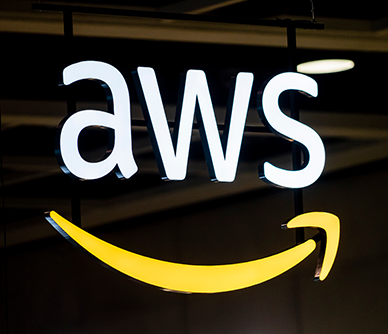- Posted on : November 6, 2023
-
- Industry : Corporate
- Service : Corporate
- Type: Blog

The much-anticipated AWS New York 2023 event was organized at the epicenter of the tech world. It brought together technology enthusiasts, innovators, and industry leaders, offering everyone a deep dive into the latest developments in the AWS ecosystem. From groundbreaking announcements to insightful sessions, the event was designed to benefit start-ups and established enterprises – showcasing and unveiling AWS's latest innovations. The event included keynote presentations, breakout sessions and hands-on labs and the theme in focus this year was the transformational power of generative AI and its impact on industries. It put a spotlight on the future of generative AI, which has clearly progressed beyond being just another buzzword – it represents a transformative shift in how data, machine learning and artificial intelligence are now approached. Attendees discovered the latest advancements in data and AI to help them improve performance in their respective businesses. Some of the keynote speakers included Swami Sivasubramanian, VP of Databases, Analytics and ML at AWS, Gabrielle Tao, SVP, Product Management at Salesforce and Lindsay Silver, SVP, Data and Commercial Technology at FOX Corporation.
Some of the noteworthy generative AI solutions showcased at the event
AWS emphasized that Gen AI's capabilities are driven by the availability of data, scalable computing infrastructure and advanced machine learning technologies. A key focus area of the event was AWS's commitment to reimagining ways to solve problems using innovative technologies. AWS Quantum Computing is a potential tool to revolutionize industries by providing access to quantum capabilities in the cloud. AWS Graviton4, a custom-designed chip that ushers in a new era of chip technology, was a major highlight at the event. It encompasses capabilities that enhance performance, security, and efficiency. Additionally, attendees were introduced to a slew of new AI models with advanced analytics capabilities and enhanced services. These include Amazon Bedrock, a robust platform for building AI solutions; the Entity Resolution Analytics Service, a tool to tackle data deduplication challenges; OpenSearch Serverless, a service for delivering scalable and cost-effective search solutions; and QuickSight Q, a game-changing addition to the AWS QuickSight analytics service.
To elucidate further on these offering, AWS accentuated on:
- Amazon Bedrock: Amazon Bedrock's library now includes AI models like Command from Cohere, Claude 2 from Anthropic, and Stable Diffusion XL 1.0 from Stability AI. It also features Amazon's own Titan model, capable of text generation, summarization, answering questions, and data extraction, as well as foundation models from AI21 Labs. These models are accessible to all Amazon Bedrock users. Agents allow developers to seamlessly connect foundational models to their organization's data sources via API calls. This streamlines the process of building custom AI-powered applications, such as customer service bots, by reducing the time and effort required. To add to this Sivasubramanian said:
“This is a net new capability for developers to enable generative AI applications to complete tasks in just a few clicks… without having to write any code,”
- AWS Entity Resolution: This analytics service employs machine learning to match and link records, aiding business analysts and developers in managing extensive data sets. For instance, it can assist finance organizations in fraud prevention by connecting data from various accounts and credit cards. It is now available in the Asia Pacific region, the UK, Europe, and the US. Highlighting the above, Sivasubramanian added:
“To ensure you have the right, relevant, high-quality data to train your models or customize these FMs for your use cases, you need a strong data foundation,”
- Vector Engine and Amazon OpenSearch Serverless: With its additional support to vector engine, it is now easier than ever before for customers to use vectors for search and generative AI applications. Best of all they can do this without the need for managing a vector database infrastructure. Vector embedding is an option for machines to comprehend relationships across different media like text, images, audio, and video in an ML-digestible format. Developers can conveniently track and store vector endpoints along with business data and text. This enhancement simplifies the creation of machine learning-augmented search portals and generative AI applications using OpenSearch Serverless. Further, Sivasubramanian said:
“This vector engine offers simple, scalable and high-performing vector storage and search without having to manage any infrastructure,”
- Amazon QuickSight Q: Like AI, BI is of immense importance to organizations. Amazon QuickSight introduced generative BI solutions for customers to introduce business intelligence in their operations in the form of natural languages questions. It is also capable of sharing analysis and insights in easy-to-visualize formats in seconds, playing an important role in business decisions. QuickSight Q, designed for business analysts, streamlines data exploration and visualization, allowing analysts to create charts, dashboards, and summaries with ease.
As the event concluded, AWS shared its vision for a future invested heavily in generative AI and cloud computing. The message was clear: AWS will continue pushing the boundaries of what is possible in the cloud. Generative AI, with its transformative capabilities, will play a central role in shaping this future, unlocking new realms of revolution and problem-solving. AWS New York 2023 offered a captivating glimpse into the future of AI and ML, marked by the rise of Gen AI and its profound impact on AWS's services and solutions. With an unwavering commitment to innovation and the potential of data, scalable computing and ML technologies, AWS emerges as a global leader that promises to redefine businesses and unlock extraordinary possibilities.







